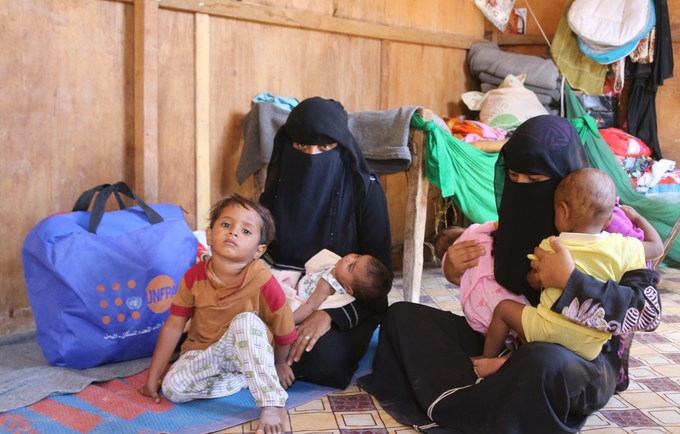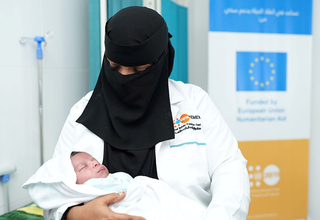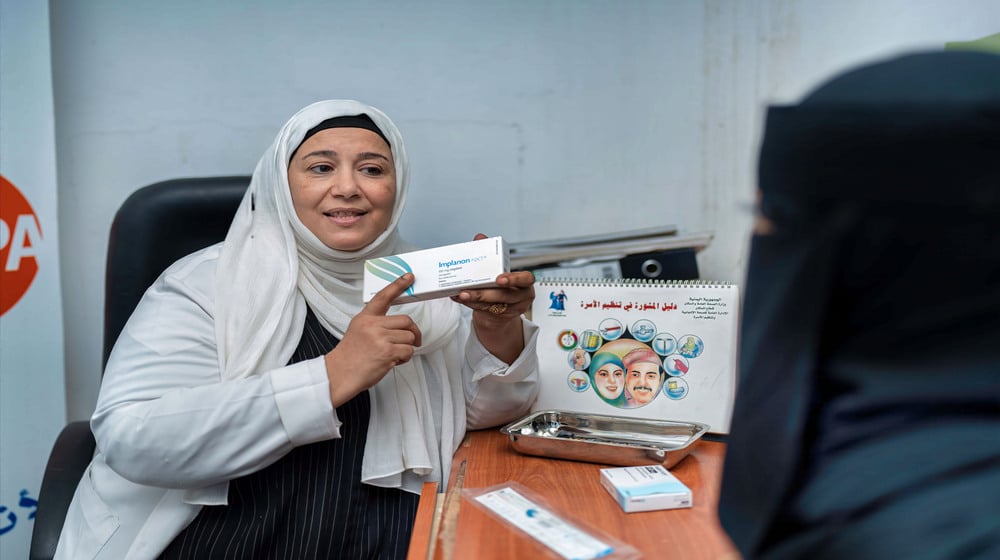Yemen remains the site of one of the world’s largest humanitarian crises. A staggering 21.6 million people require some form of humanitarian assistance in 2023, and 80 per cent of the country’s population struggles to access food, safe drinking water and adequate health services. These are the results of multiple overlapping emergencies that have pummeled the country: violent conflict, economic collapse, recurrent natural disasters and severely disrupted public services.
Millions have been uprooted from their homes, the economy has collapsed and nearly the entire health system has cratered, allowing preventable diseases, such as cholera and COVID-19, to spread unchecked.
Women and girls are among the hardest hit. An estimated 80 per cent of the 4.5 million people displaced in Yemen are women and children.
UNFPA plays a critical role in the overall humanitarian response in Yemen, providing lifesaving reproductive health and protection services.
UNFPA is the single source of essential reproductive medicines for the country at present. UNFPA has been ensuring a reliable reproductive health supply chain despite blockades and other bureaucratic impediments serving as lifeline to the millions of women and girls in Yemen.
UNFPA leads the Inter-Agency Working Group on Reproductive Health; and coordinates and leads in provision of women protection programmes across the country as chair of the GBV sub-cluster as per GBV AoR under the Protection Cluster.
UNFPA leads the UN’s Rapid Response Mechanism (RRM) across the country that provides emergency relief assistance to newly displaced persons in partnership with WFP and UNICEF while serving as the entry point to all other humanitarian responses; resulting in the provision of humanitarian assistance to more than 4 million displaced people since June 2018.



